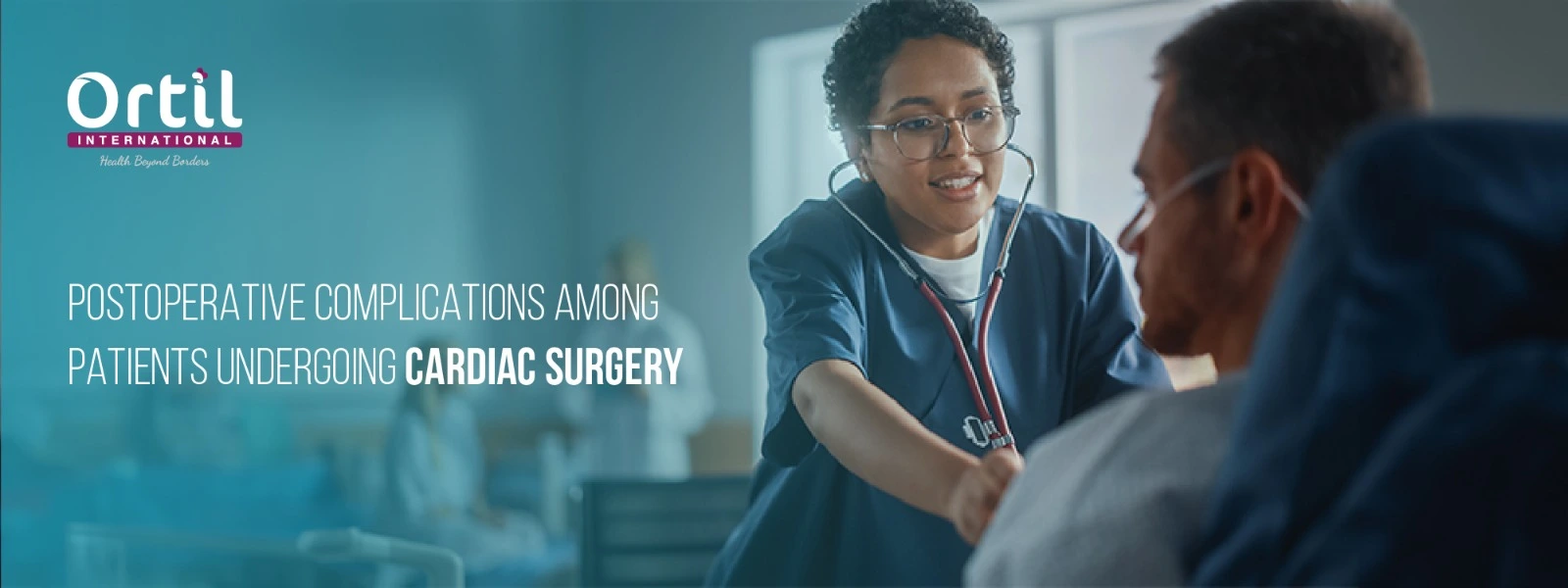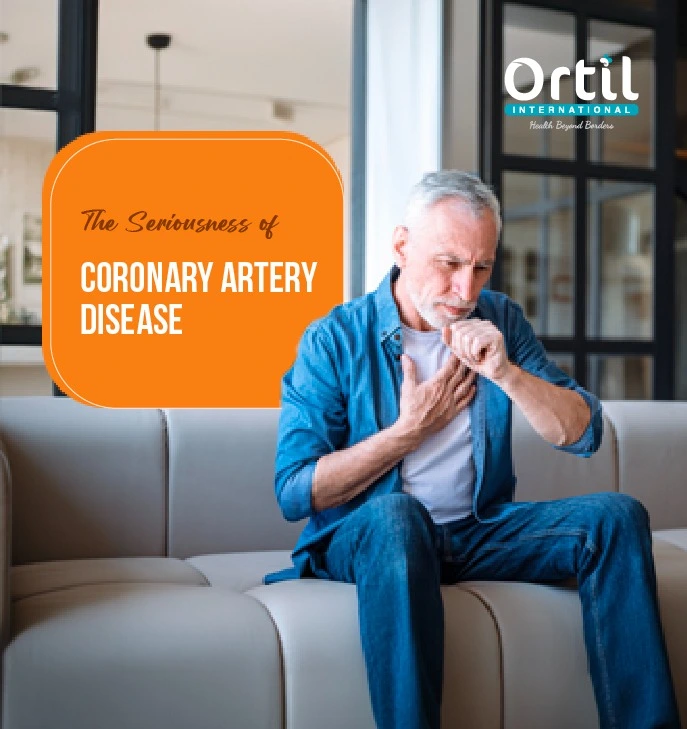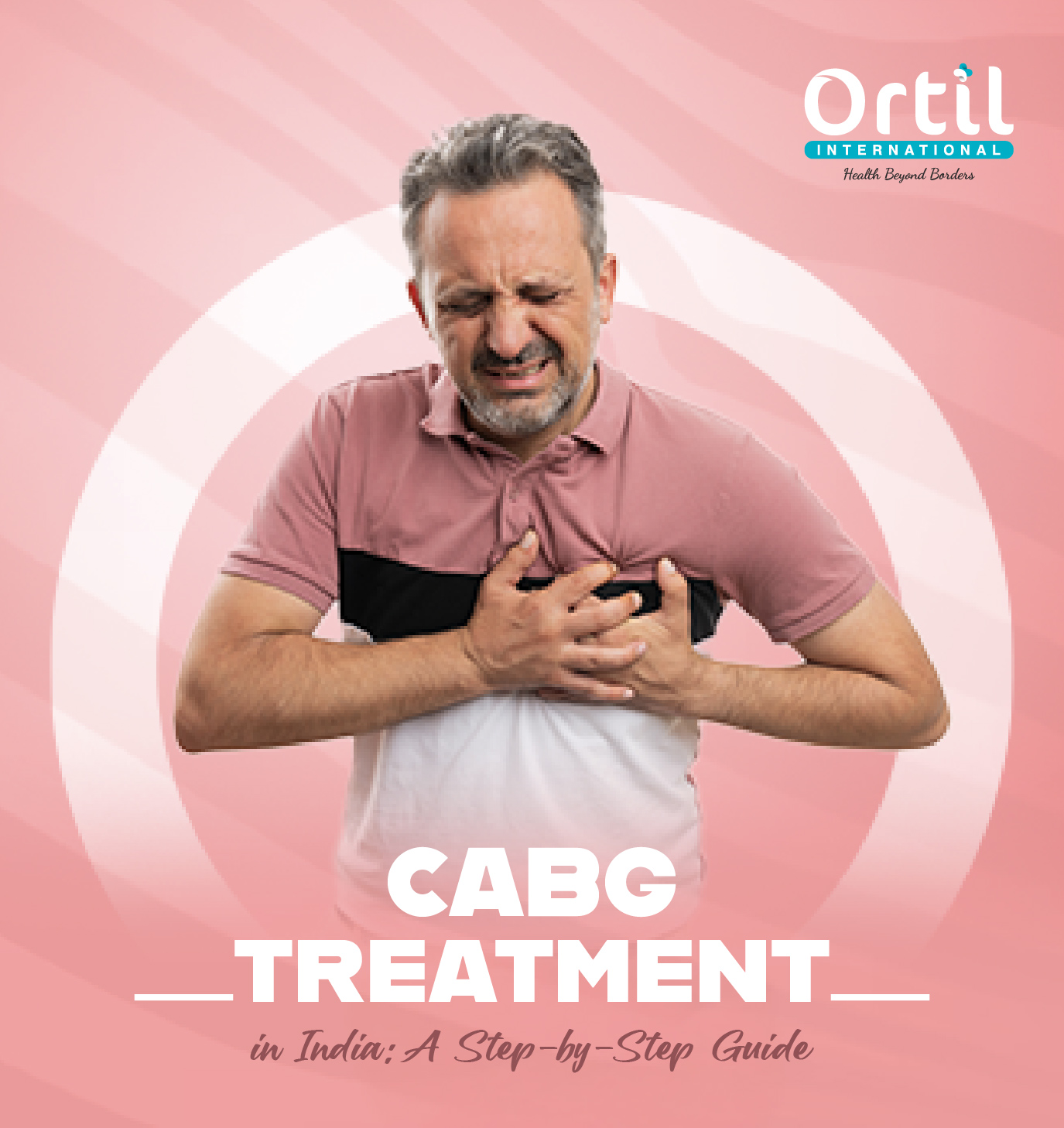What is the Most Common Complication After Open Heart Surgery
Major surgery, like open heart surgery, has some risks or complications like infection, arrhythmia, and blood clot formation, but the most common type of complication after open heart surgery is bleeding, which usually occurs at the site of the incision at the center of the chest along the sternum.

However, bleeding is not the only cardiac surgery complication that can occur during or after open heart surgery. Each patient is unique and can have many complications depending on their condition or the presence of other medical illnesses.
What are the Complications of Open Heart Surgery?
Before the open heart surgery, your doctor will talk about the after heart bypass surgery side effects and benefits and will only perform this surgery when it gives more benefits than complications. Not all patients are suitable for open-heart surgery, and your doctor will only perform this surgery according to your general health and condition. Some of the complications of open-heart surgery are listed below:
- Infection
- Bleeding
- Blood clots
- Stroke
- Heart attack
- Arrhythmias or Irregular heartbeats
- Lung infections
- Kidney problems
- Neurological complications
- Wound complications
- Fluid buildup around the heart
- Partial or complete collapse of the lung
- Respiratory failure
- Increased pressure on the heart due to fluid buildup
- Fluid buildup around the lungs
- Inflammation of the layers of the heart
- Gastrointestinal complications
- Anemia
- Leakage of lymphatic fluid into the chest cavity
- Psychological effects such as depression or anxiety
You should immediately report to your doctor if you see any signs of infection, fever, or bleeding because it can further create complications, and timely management can help minimize the risks. Beware of the above-mentioned after heart bypass surgery complications and take action immediately.
What are the Side Effects after Open Heart Surgery?
Open heart surgery is performed by making a large incision at the center of the chest, and the procedure is performed on the heart. Because the surgery has many risks, it can also lead to many side effects like bleeding, wound complications, irregular heartbeat, pain, and damage to the tissues or nerves nearby.
If you have other medical conditions like diabetes, respiratory lung disease, or kidney disease, then you are at higher risk of side effects. Some of the after-bypass surgery side effects that you can experience are listed below:
- Fatigue
- Pain or discomfort at the incision site
- Swelling (edema)
- Loss of appetite
- Nausea and vomiting
- Constipation
- Dizziness or lightheadedness
- Insomnia or difficulty sleeping
- Memory or cognitive changes
- Difficulty breathing
- Chest discomfort
- Muscle weakness
- Decreased mobility
- Changes in mood or emotions
- Sensitivity to temperature changes
- Changes in taste or smell
- Hair loss (temporary)
- Scar tissue formation
- Low-life quality
Potential Complications During and After Open Heart Surgery
Some patients are at greater risk of complications due to poor general health before surgery, and it can also prolong the recovery period as compared to patients with good general health and no other disease. Some of the after-heart bypass surgery complications are described below:
Bleeding : Sometimes, bleeding occurs from the incision site or from the part of the heart where the procedure is being performed.
Arrhythmia : Patients experience the symptoms due to irregular heartbeats, which can occur in patients undergoing open-heart surgery.
Blood clots : Blood clots can form after open heart surgery due to the immobility of the patient, which can also travel in the blood vessels and increase the risk of death.
Stroke : Blood clots formed after surgery sometimes travel from blood vessels and enter the brain, where they block the main arteries and can lead to stroke.
Anemia : Sometimes, patients lose a considerable amount of blood during or after open-heart surgery, which can decrease the blood level in the body.
Cardiac Tamponade : It is a condition in which the heart cannot perform its function effectively due to the presence of fluid in the sac surrounding the heart.
Anesthesia Complications : Patients may experience allergic reactions to anesthesia, which can complicate the condition of the patient.
Presence of other Medical Illnesses : The risk of complications is higher in patients with different medical conditions such as diabetes, hypertension, or kidney disease.
What are the Post-Open Heart Surgery Neurological Problems?
Neurological problems are one of the severe complications after open heart surgery, and it is essential to manage them because they can lead to life-threatening conditions. One of the primary neurological problems that occurs after open-heart surgery is stroke, which is a significant complication. Other neurological problems include delirium or encephalopathy. Some of the neurological issues that can occur after open-heart surgery may consist of the following:
- Stroke
- Cognitive impairment
- Delirium
- Encephalopathy
- Memory loss
- Confusion
- Seizures
- Peripheral neuropathy
- Nerve damage
- Paralysis or weakness followed by stroke
- Difficulty concentrating
- Dizziness or vertigo
- Headaches
Conclusion
Complications of open heart surgery can occur, but they can be managed with proper care and management. To avoid these complications, strictly follow your surgeon's instructions and take medications on time. However, some patients with other medical illnesses can experience complications due to their condition.
FAQ's of Complications After Open Heart Surgery
What types of patients are at the highest risk of complications after CABG?
Patients with diabetes, hypertension, or lung and kidney diseases are at higher risk of complications after CABG.
What is the survival rate of open heart surgery?
The survival rate is very high after open heart surgery and may range from 90% to 97%.
Why are you so weak after open heart surgery?
Open heart surgery is one of the major surgeries, and your body becomes weak after this because your body uses all of your energy for the proper healing.
Can you live a long life after open heart surgery?
Yes, as the survival rates are high, you can live a long life after open heart surgery if there are no complications.
What Happens to your Body after Open Heart Surgery?
After heart surgery, your body may feel various symptoms like chest pain, constipation, muscle pain, not feeling hungry, swelling, and difficulty sleeping. However, these side effects can be managed with proper medications and lifestyle.




















